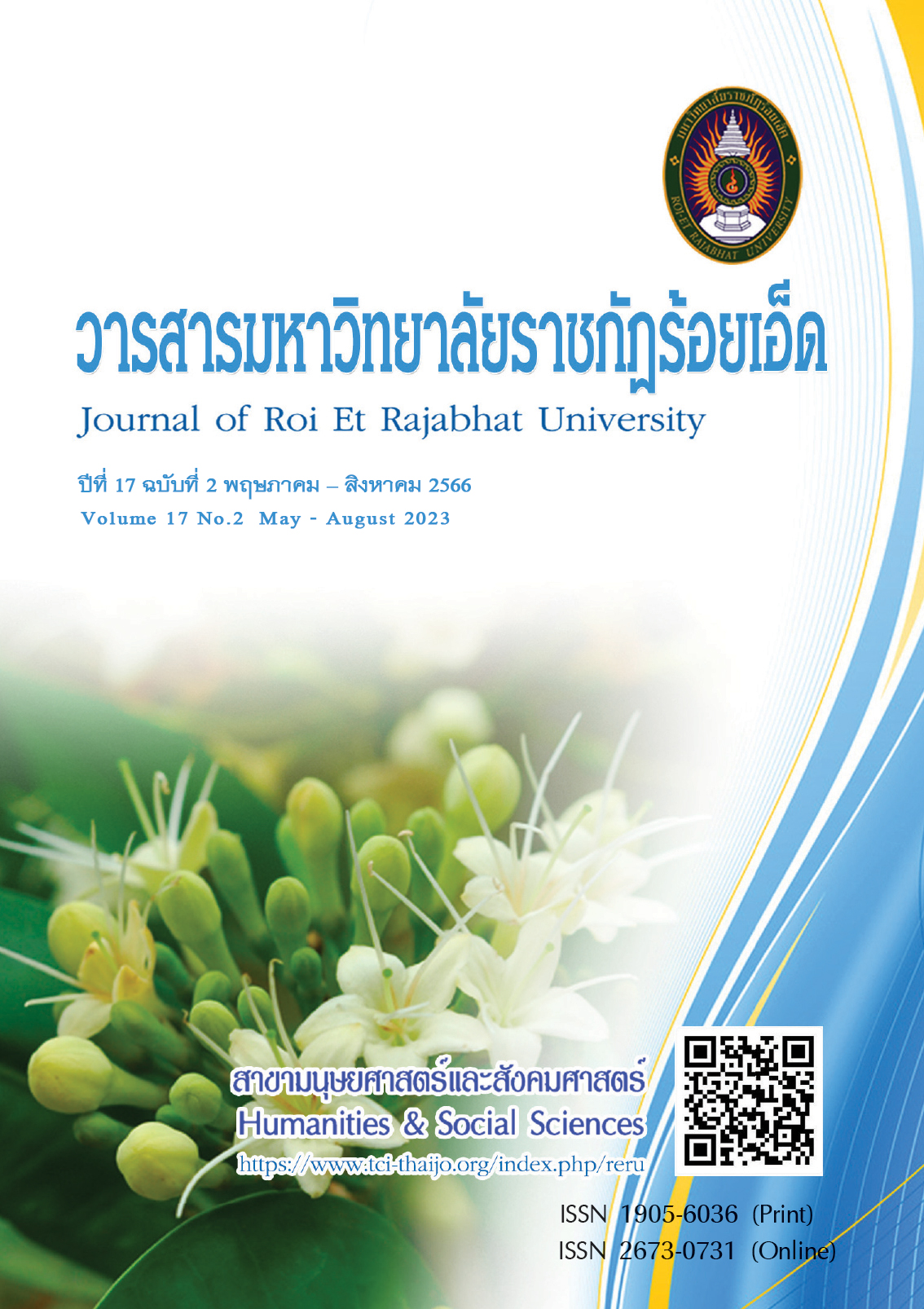An Exploration of Successful Practice for Thai Nurse Entrepreneurs
Keywords:
Keywords: Guideline to successful practice, Entrepreneurship development, Thai nurse entrepreneursAbstract
This qualitative research aimed to study the factors influencing the Thai nurses’entrepreneurship
development and study the development of entrepreneurship in Thai nurses who are entrepreneurs and still operate and to study the path to success that will benefit the new generation of nurses who want to become entrepreneurs. Data were collected through in-depth interviews and stories from the business experiences of 20 nurses who are entrepreneurs or business owners and registered nurses who are the key informants and give clear saturation data and sufficiency data. The content analysis was used in the data analysis. The results of the analysis of data from the life stories and business experiences of the 20 nurses showed that different kinds of businesses had different concepts of running a business. The similarity was that nursing knowledge and nursing process including the characteristics of nurses should be applied in business operations along with business management, knowledge of the administrative process,
and characteristics of executives and entrepreneurs needed to study and learn more about business administration including the entrepreneurship development guide for Thai nurses who wanted to become entrepreneurs together with both general advice and specific advice. From this research, it can be concluded that there are 3 phases of becoming successful entrepreneurs. They are 1) The first phase of entrepreneurship development is using more critical thinking, seeking more information, or studying more about the kind of business that one is interested in doing before deciding to start because there is not much time to lose trial and error during operating it. Please give the time to learn more from the others who succeed. Moreover, it has to learn more business knowledge, and law regulation dealing with the kind of business from the expert, and the lawyer. Before starting a business, many questions to answer are like these: - Who are your customers? What kinds of products or services? Where can the business/enterprise be established? How will administrative resources be prepared and managed? How will the market and brand management including the fund or finance handle? 2) The second phase of becoming an entrepreneur is studying continually business management, marketing, innovation, and technology. Customers are always important for all kinds of business. They are very important persons (VIPs). The products or services must serve their needs and satisfaction. The customer’s needs are the priority in business. Quality control must be set for every step of production or service. The evaluation must be done for every step of production or service for correction and continuous development. 3) The third phase is the evaluation process.
This is not the end of operation but renewing or correcting the error for customers’ satisfaction for sustainable enterprises. There are many things and processes to do for some special entrepreneurs because there are many kinds of entrepreneurs. Following the rules of each kind of business can cause more success than failures such as franchising, the investor, and insurance agencies. The results of this research are correct based on research objectives, research question, and research conceptual framework.
References
Boonthong, T. and Hanucharurnkul, S. (2016). Strategies for the development and retention of the nurse
within the Nursing Profession. Thai Journal of Nursing and Midwifery Practice, 3(2),15-24.
Buhat, M. L. G. (2016). Global changes in The 21st century impact on nursing profession. Guest speaker in
STOU’s Workshop on Nursing Education and Service in The 21st Century. 15-16 June, 2016.
Chipibalsalit, P. (2016). School of Nursing, Shinawatra University. (01-08-2016) Interview.
Heale, R. and Forbes, D. (2013). Understanding triangulation in research. Evid Based Nurs, 16(4), 98.
Khunthar, A. (2014). The Impacts and Solutions to Nursing Workforce Shortage in Thailand. Journal of
Nursing Science. 32(1), 81-90.
Vania M. J., Nassif, V. M. J., Ghobril, A. N. and Siqueira de silva, N. (2010). Understanding the Entrepreneurial Process:
a Dynamic Approach.Brazilian Administration Review.
Shrestha, S. K. (2012). Entrepreneurial Success: An Overview. Kantipur City College, 1(1), 9-10.
Srisuphan. W. and Sawangdee, K. (2012) Recommended policy-based solutions to the shortage of
registered nurses in Thailand. Thai Journal of Nursing Council. 27(1), 5-12.
Taowkram, B. (8 August 2016). Interview. Dean, Faculty of Nursing, Rajabhat Suan Dusit University.
Downloads
Published
How to Cite
Issue
Section
License
Copyright (c) 2023 Roi Et Rajabhat University

This work is licensed under a Creative Commons Attribution-NonCommercial-NoDerivatives 4.0 International License.
บทความที่ได้รับการตีพิมพ์เป็นลิขสิทธิ์ของวารสารมหาวิทยาลัยราชภัฎร้อยเอ็ด
ข้อความที่ปรากฏในบทความแต่ละเรื่องในวารสารวิชาการเล่มนี้เป็นความคิดเห็นส่วนตัวของผู้เขียนแต่ละท่านไม่เกี่ยวข้องกับมหาวิทยาลัยราชภัฎร้อยเอ็ด และคณาจารย์ท่านอื่นๆในมหาวิทยาลัยฯ แต่อย่างใด ความรับผิดชอบองค์ประกอบทั้งหมดของบทความแต่ละเรื่องเป็นของผู้เขียนแต่ละท่าน หากมีความผิดพลาดใดๆ ผู้เขียนแต่ละท่านจะรับผิดชอบบทความของตนเองแต่ผู้เดียว





